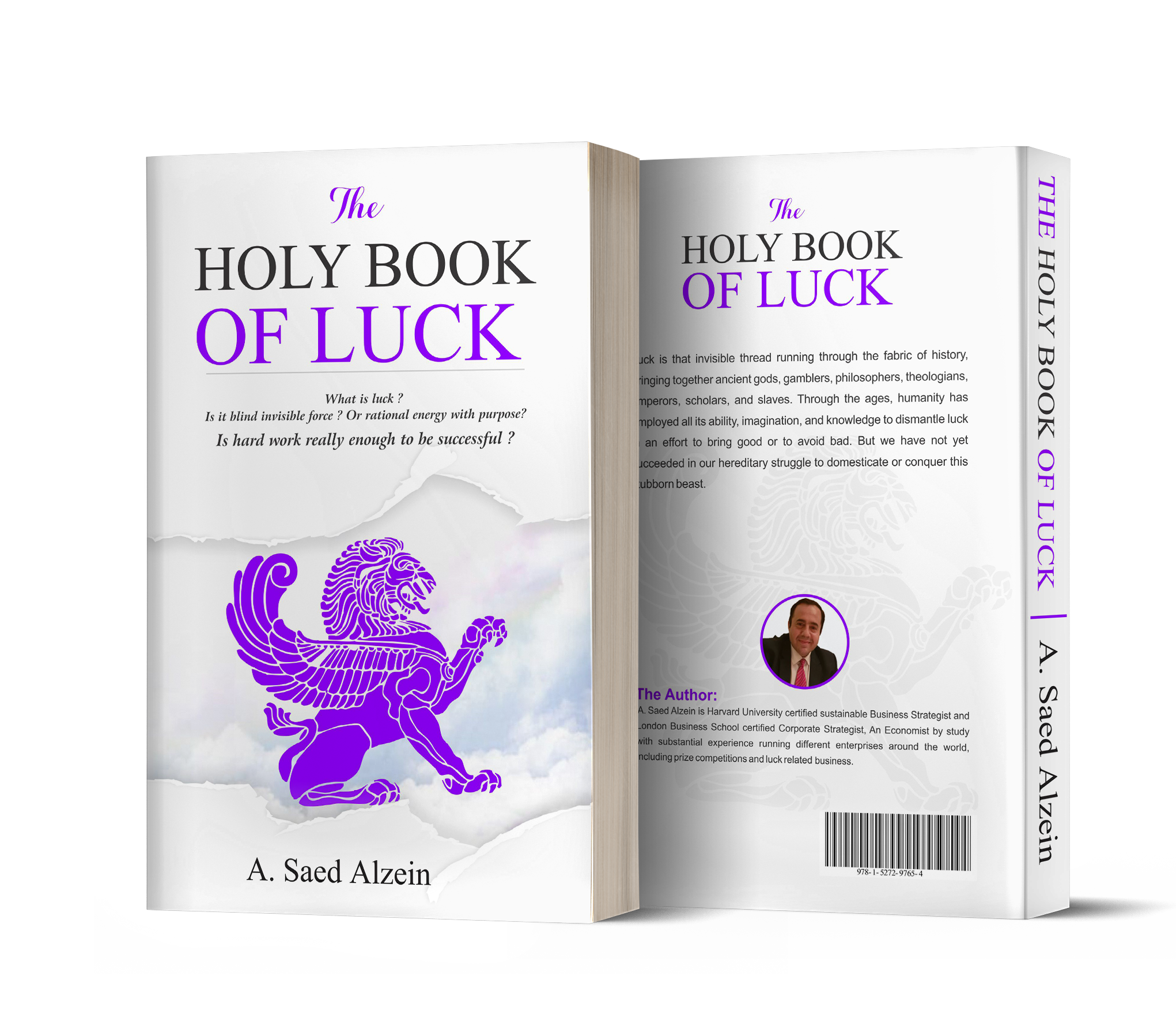Luck looks like a golden thread running through the fabric of history, bringing together ancient gods, gamblers, philosophers, theologians, emperors, scholars, and slaves. Through the ages, humanity has employed all its ability, imagination, and knowledge to dismantle luck in an effort to bring good or to avoid bad. There are many theological myths about luck as an interpreter of predestination, and entire philosophical movements were developed to deal with its dominance, and new branches and applications of mathematics arose to analyse it. Generations of astrologers and fortune-tellers earned their living and profited from trading in it, but we have not yet succeeded in our hereditary struggle to domesticate or conquer this stubborn beast.
The Start
I have been fascinated by luck and chance since early childhood. I survived a traumatic car accident at the age of six and still remember being rushed to hospital covered in blood; my mother holding my hand. I could hear her heart beating frantically, worried that I wouldn’t make it. Luckily, I did make it – I survived. Looking back at those days, I wonder if I can describe myself as lucky? Does being alive and in good health mean that you are lucky?
I grew up hearing people being called lucky. Some were lucky because they were rich, others by being in a happy and successful marriage/relationship, or by winning prizes and competitions. I watched people winning the lottery on their first try, while so many others did not win even when they were buying tickets and playing for years and years! I have always wondered what guides the flip of a coin. Were rich people born under a lucky star? Are we born lucky or unlucky? Is luck engineered by a higher power? I have read stories of people accidentally missing a doomed plane; stories of people investing a large sum of money in a successful company just before it went bankrupt – losing a life-breaking money; while others withdrew their investment just a few days before the same company collapsed.
Have you ever wondered?
What is luck exactly? Is it blind force that hits randomly and changes people’s lives for the better or worse? Is it rational energy with conscious purpose? Does God or the universe dedicate where luck shall go? Can we harness luck as we do with wind and solar power? Answering these questions means finding the answers to intriguing mystery that have puzzled the greatest minds throughout the ages.
In my book, The Holy Book of Luck, I am challenging the outdated notion that hard work is the only way to success. It is not.
You could work as hard as you can for as long as you are able, and still fail. You could be a faithful, loving, and extremely caring person yet still fail to find true love. We don’t hear any stories of failure; we only hear stories of success and hard work because they are the exception and not the rule.
Just don’t mention luck to Jeff Bezoz !
Successful people, who believe they do it all on their own, are almost certainly wrong. To be successful, every and each one in a long list of events must happen.
Professor Daniel Kahneman (an emeritus professor of psychology and public affairs at Princeton University) who won the 2002 Nobel Prize in Economics states that the difference between moderate and great success is mostly luck, not skill. Chance plays a much greater role in our lives than we might wish or realize.
Experts provide us with a long list of elements and ‘ingredients’ for success and this list usually includes – amongst various other buzzwords: accept challenges, set goals, be ready to work hard, give it your all, learn and never stop learning, be focused and determined and never give up. The catchwords are not provided with instructions on how to apply them – like a recipe to bake a cake. If only we knew what to mix, what to cook with butter and what to grind – then we could whip up a perfect recipe for success. We frequently take the buzzwords we are comfortable with, and we whip them into something, hoping for success.Unlike the perfect cake recipe, there is no perfect recipe for success. Thus, our ‘baking’ sometimes fails, and we lose interest – we give up on being successful, and we settle for second-best. Some people even settle for mediocrity, as it is easier when no one expects much from you – then you cannot fail.



